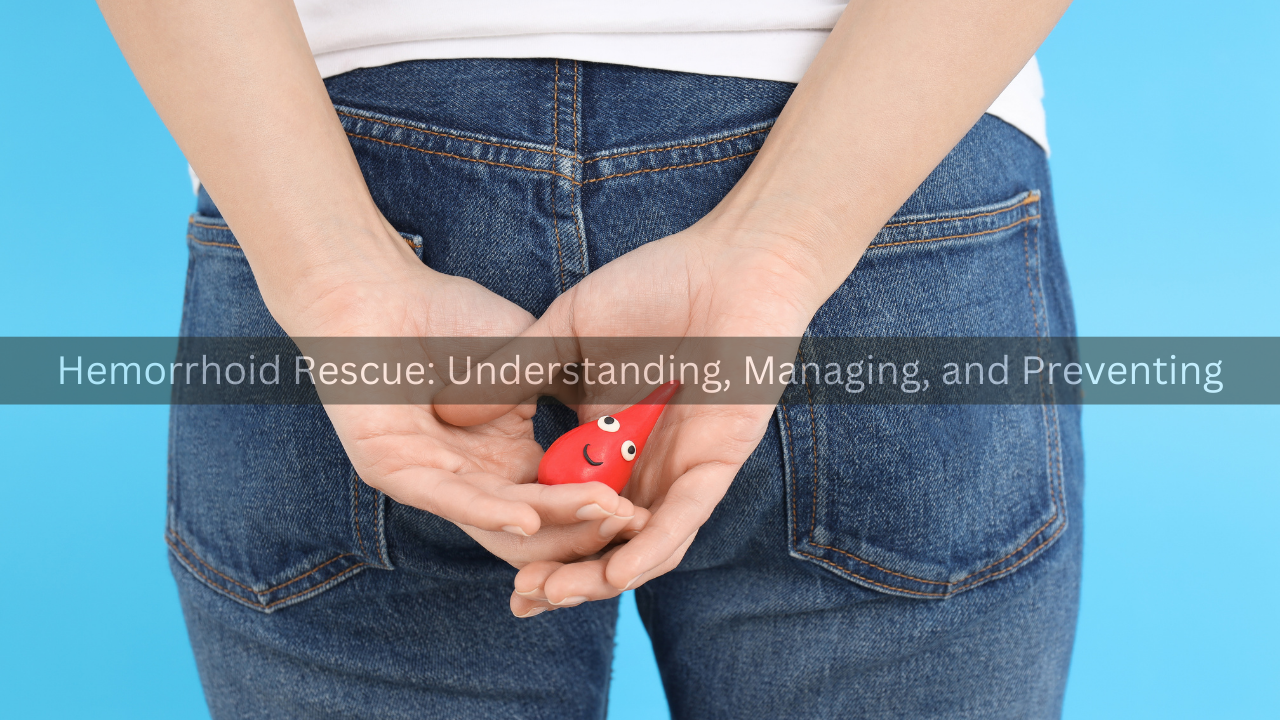
Hemorrhoids are a common condition that can cause discomfort and pain, but with the right lifestyle changes, you can significantly reduce your risk of developing them and achieve long-term relief. Incorporating these preventive measures into your daily routine can help maintain optimal bowel health and prevent the onset of hemorrhoids.
1. Maintain a High-Fiber Diet
A diet rich in fiber is one of the most effective ways to prevent hemorrhoids. Fiber softens stools and promotes regular bowel movements, which reduces the need for straining during defecation—a primary cause of hemorrhoids. Aim to include a variety of high-fiber foods in your diet, such as:
- Fruits: Apples, pears, berries, and bananas
- Vegetables: Broccoli, carrots, and leafy greens
- Whole Grains: Brown rice, oatmeal, and whole wheat bread
- Legumes: Beans, lentils, and chickpeas
Gradually increase your fiber intake to allow your digestive system to adjust and drink plenty of water to aid fiber in moving through your digestive tract.
2. Stay Hydrated
Proper hydration is crucial for preventing constipation, which can lead to hemorrhoids. Drinking adequate amounts of water helps to keep stools soft and easier to pass. Aim for at least 8 glasses of water a day, and increase your intake if you are physically active or live in a hot climate.
3. Exercise Regularly
Regular physical activity helps to stimulate bowel function and prevent constipation. Exercise also promotes overall health and can help you maintain a healthy weight, which reduces pressure on the pelvic veins. Incorporate activities such as:
- Walking: A daily walk of 30 minutes can improve circulation and digestion.
- Cycling: Low-impact cycling can enhance cardiovascular health and support bowel regularity.
- Yoga: Yoga poses can help improve digestion and relieve constipation.
Avoid prolonged periods of sitting or standing, as these can contribute to hemorrhoid development.
4. Avoid Straining During Bowel Movements
Straining during bowel movements can put excess pressure on the veins in the rectal area, leading to hemorrhoids. To avoid straining:
- Respond to Urges Promptly: Don’t delay bowel movements; this can cause stools to harden and increase the need for straining.
- Use the Correct Posture: Sit on the toilet with your knees higher than your hips (e.g., using a footstool) to facilitate easier bowel movements.
If you experience difficulty with bowel movements, consider using a gentle stool softener after consulting with a healthcare provider.
5. Practice Good Hygiene
Maintaining proper hygiene can help prevent irritation and infection around the anal area. After each bowel movement:
- Use Gentle Products: Opt for unscented, soft toilet paper or moist wipes.
- Clean Carefully: Gently clean the area with a moist cloth or wipe, avoiding harsh scrubbing.
- Pat Dry: Use a soft towel to pat the area dry to avoid further irritation.
6. Avoid Heavy Lifting
Frequent heavy lifting or strenuous activities can increase abdominal pressure and contribute to hemorrhoid development. If you must lift heavy objects, use proper techniques:
- Bend at the Knees: Squat down and lift with your legs rather than your back.
- Ask for Help: Whenever possible, seek assistance for lifting heavy items.
7. Maintain a Healthy Weight
Excess weight can put additional pressure on the veins in the rectal area, increasing the risk of hemorrhoids. Adopt a balanced diet and regular exercise routine to achieve and maintain a healthy weight.
8. Manage Stress
Chronic stress can affect your digestive health and lead to issues like constipation. Incorporate stress-management techniques such as:
- Meditation: Practice mindfulness and relaxation techniques.
- Deep Breathing: Engage in deep breathing exercises to calm your mind.
- Hobbies: Pursue activities that you enjoy and that help you relax.
Conclusion
Preventing hemorrhoids involves a combination of dietary, lifestyle, and hygiene practices that promote overall bowel health and reduce the risk of developing this condition. By making these changes, you can support your digestive system and maintain long-term relief from hemorrhoid discomfort. If you have persistent symptoms or concerns, consult a healthcare professional for personalized advice and treatment options.
